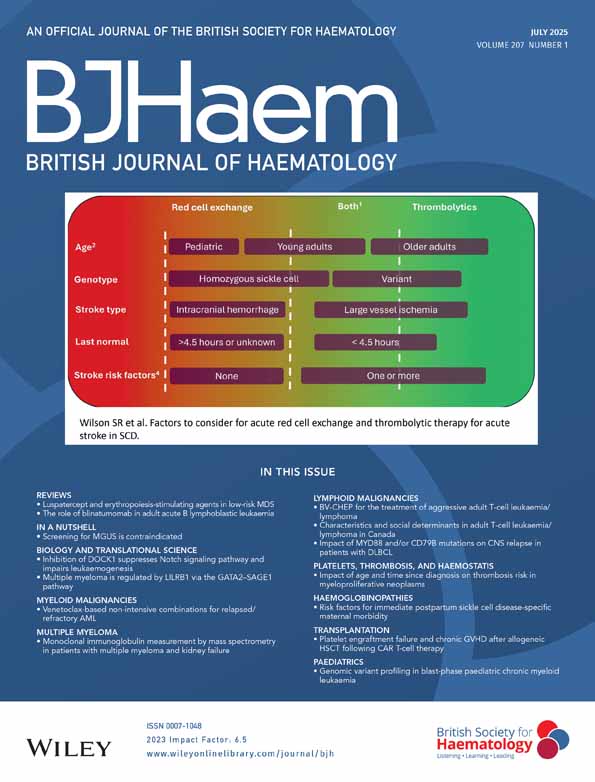Continuous complete remission in adult patients with acute lymphocytic leukaemia at a median observation of 12 years after autologous bone marrow transplantation
Abstract
We report our long-term experience with autologous bone marrow transplantation (ABMT) for 32 adult patients with acute lymphocytic leukaemia (ALL) in second or later remission (CR), or in first CR but with high-risk. Bone marrow was purged with mafosfamide (n = 25) or with immunomagnetic beads and monoclonal antibodies (n = 7). Retrospective analysis showed that 12 out of 32 patients were in continuous complete remission (CCR) at a median of 143 months (range 66–181 months). A plateau was reached at 50 months and the disease-free and overall survival rates were both 37·5%. It was notable that durable CCR could be achieved for patients in second (three out of nine) or third (one out of six) CR. ABMT could produce durable CCR and the long-term outcome compared favourably with those reported for allogeneic transplantation.




